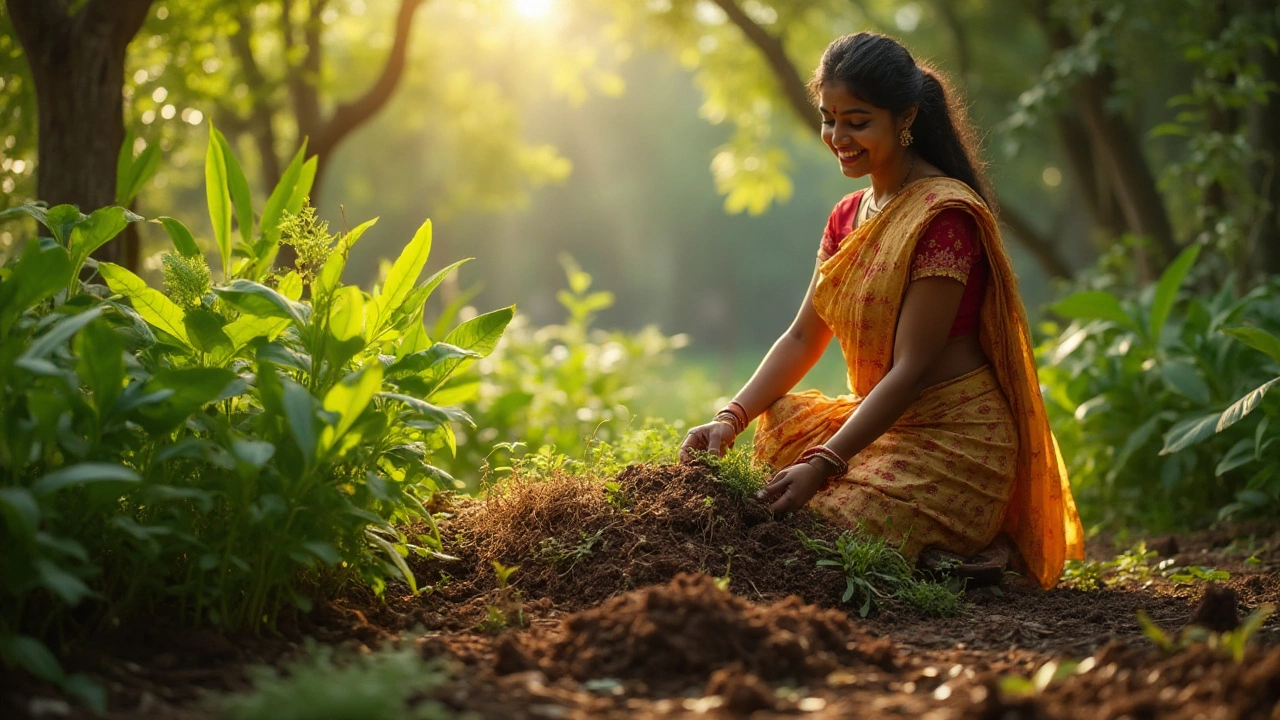Organic composting is a sustainable way to recycle kitchen scraps and yard waste into nutrient-rich soil for gardening. This practice not only reduces landfill waste but also enriches the garden with essential minerals. Discover the basics of composting, ideal materials to use, and smart tips to optimize the process. With patience and proper care, creating your own compost becomes an easy and rewarding task. Learn how to create a thriving compost pile at home with simple techniques.
Eco-Friendly Waste: Simple Ways to Turn Trash into Garden Gold
When we talk about eco-friendly waste, waste that’s reused or recycled in ways that help the environment instead of harming it. Also known as green waste, it’s not just about throwing less in the bin—it’s about seeing scraps as resources. In Indian homes and farms, food peels, dry leaves, coffee grounds, and even old paper aren’t trash. They’re the raw ingredients for healthy soil. And when you use them right, they cut down on chemical fertilizers, save money, and make your plants stronger.
Think about composting, the natural process of breaking down organic matter into nutrient-rich soil. Also known as vermicomposting when worms help out, this is how most smart gardeners in India turn kitchen waste into gold. You don’t need a fancy setup. A bucket, some brown leaves, and a little patience are enough. Then there’s organic gardening, growing plants without synthetic chemicals, relying instead on natural inputs like compost and mulch. It’s not a trend—it’s how farmers worked for centuries before chemicals took over. And now, more people are going back to it because it just works better in the long run.
What makes eco-friendly waste powerful is how it connects to everything else. Poor soil? Add compost. Water running off? Use mulch made from dried grass. Pests eating your zinnias? Healthy soil grows stronger plants that resist bugs naturally. Even things like garden soil improvement, making dense or tired soil loose, airy, and full of life. That’s often just a matter of adding the right kind of waste—like leaf mold or crushed eggshells—instead of buying expensive bags of fertilizer.
You’ll find posts here that show you exactly how to do this. Not theory. Not fluff. Real steps: how to layer compost in a balcony bucket, which kitchen scraps to avoid, why rice husks work better than sawdust in Indian soil, and how to tell when your pile is ready. Some posts even cover what not to do—like using styrofoam as mulch or dumping oily food scraps where they’ll attract pests.
This isn’t about being perfect. It’s about being smarter. One person’s trash is another’s next harvest. And in India’s hot, dry, or rainy climates, turning waste into soil isn’t just eco-friendly—it’s essential. You don’t need a big farm to start. Just a pot, a spoon, and the willingness to see waste differently.
